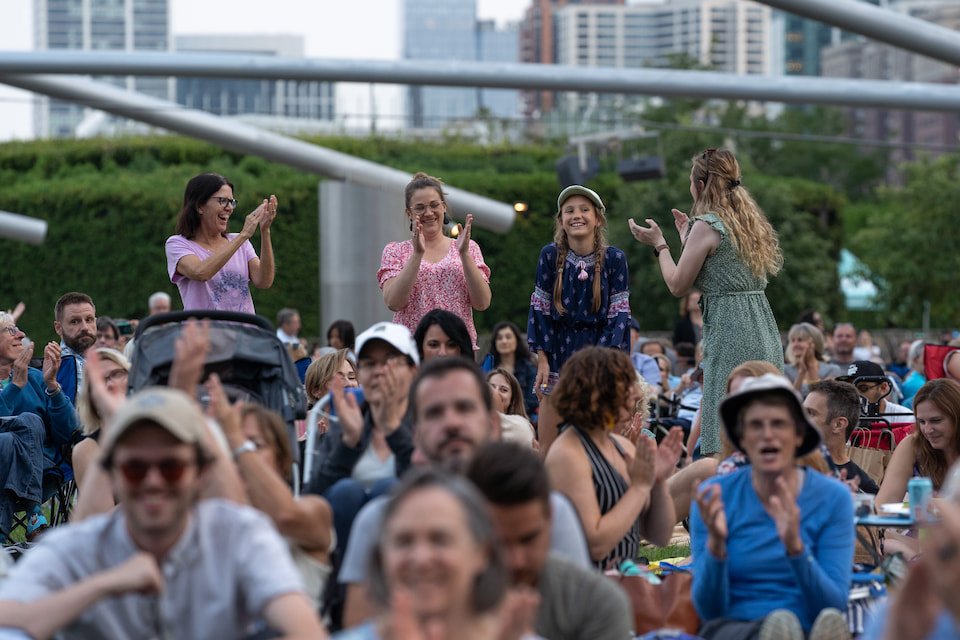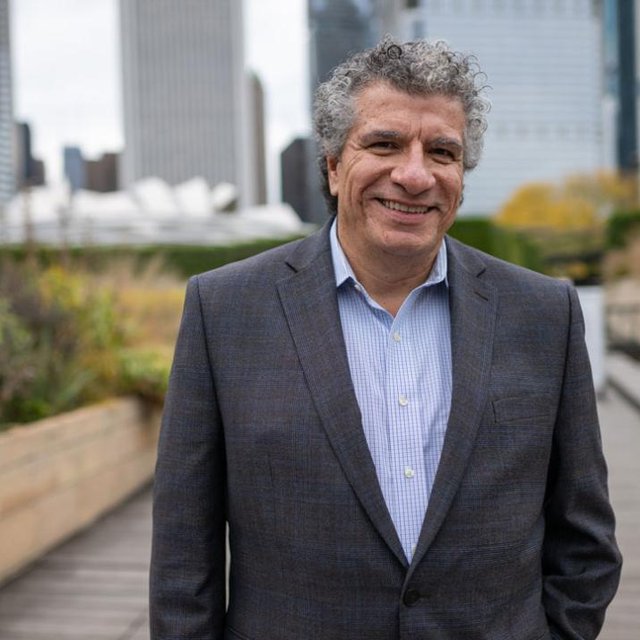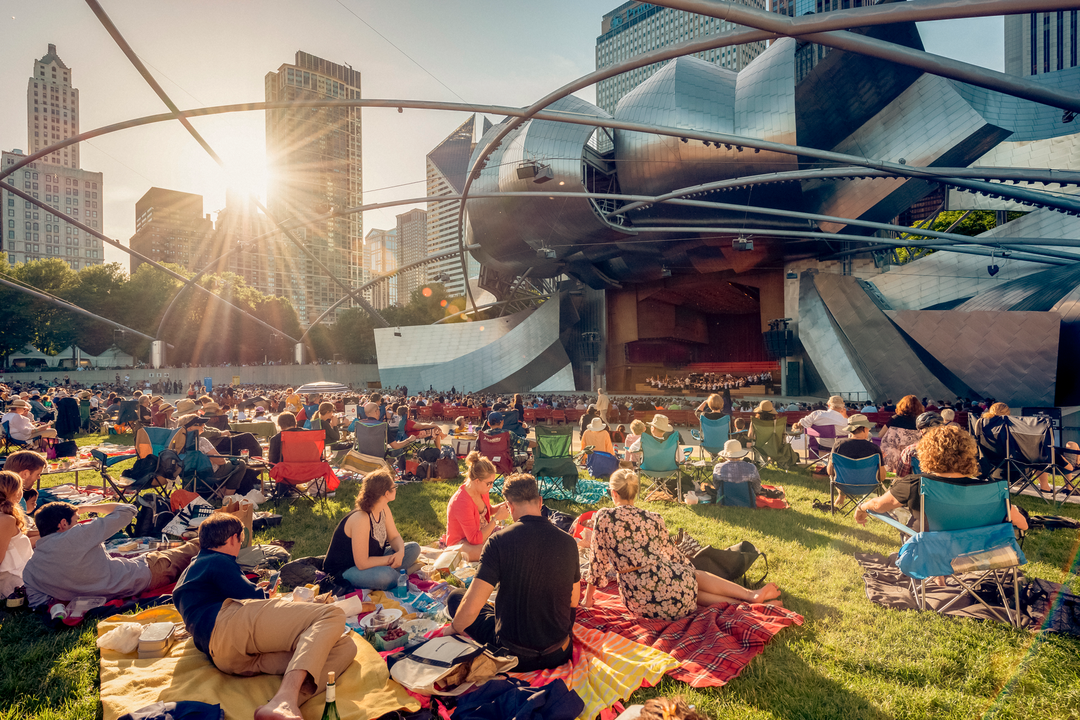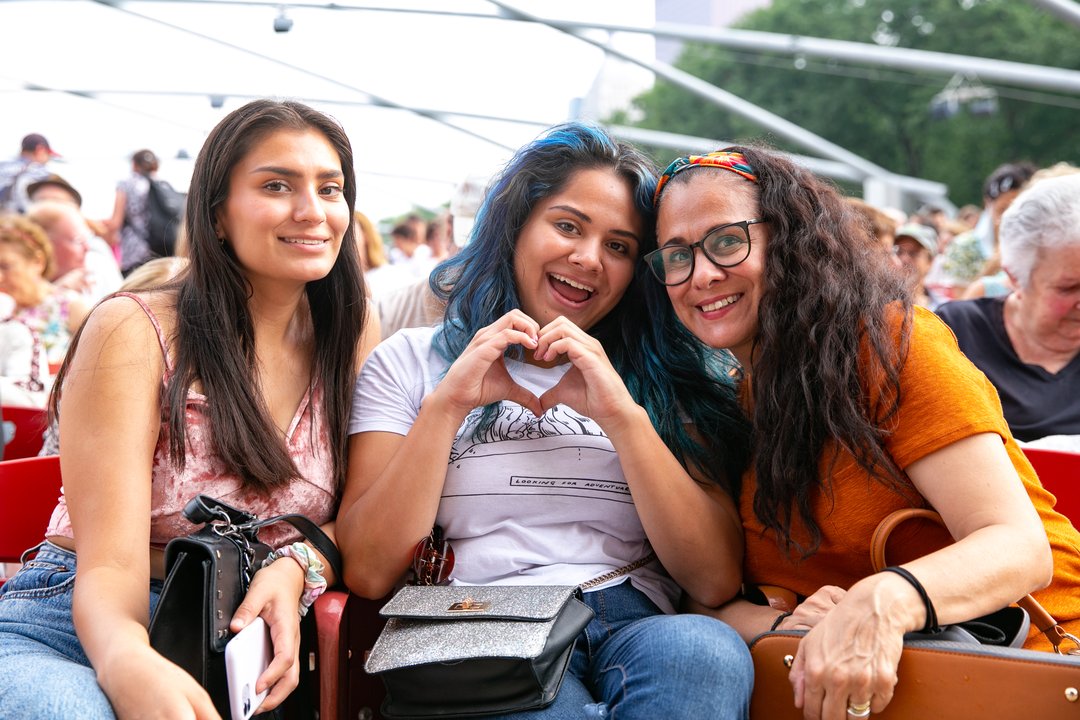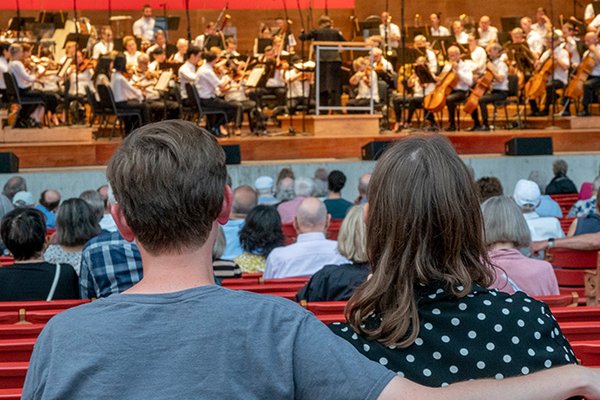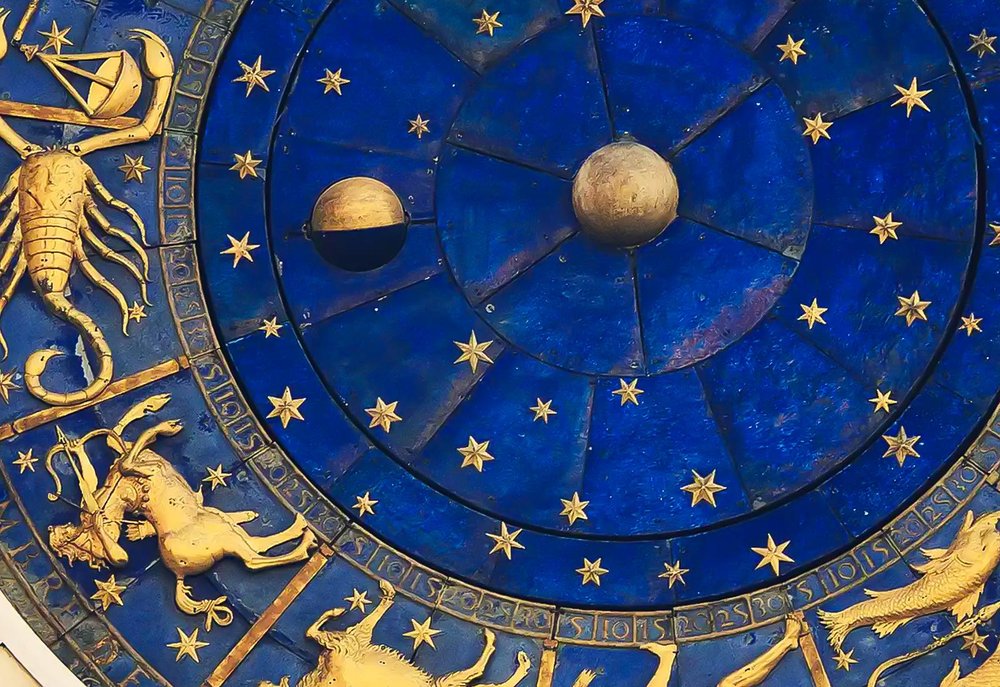
Holst The Planets
Program
Lili Boulanger Psalm 24 (5 mins)
Jake Runestad Earth Symphony (33 mins)
Evolution
Ambition
Destruction
Lament
Recovery
Intermission (20 mins)
Gustav Holst The Planets (51 mins)
Mars, the Bringer of War
Venus, the Bringer of Peace
Mercury, the Winged Messenger
Jupiter, the Bringer of Jollity
Saturn, the Bringer of Old Age
Uranus, the Magician
Neptune, the Mystic
Featuring
-
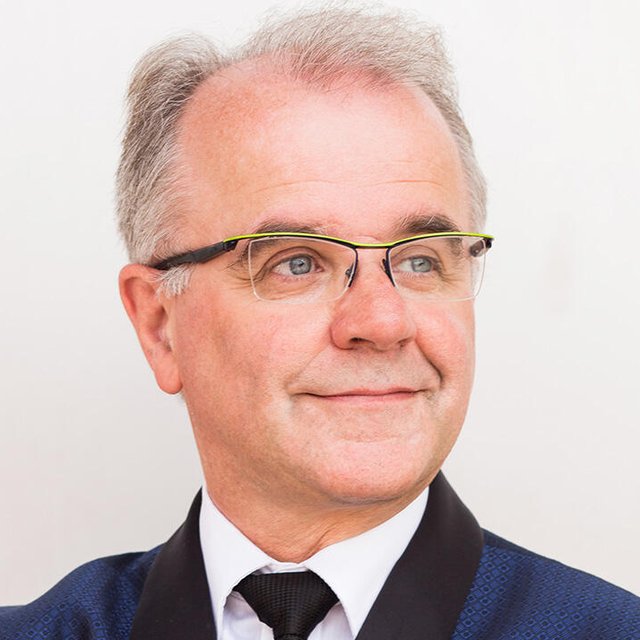
Christopher Bell
Chorus Director
-
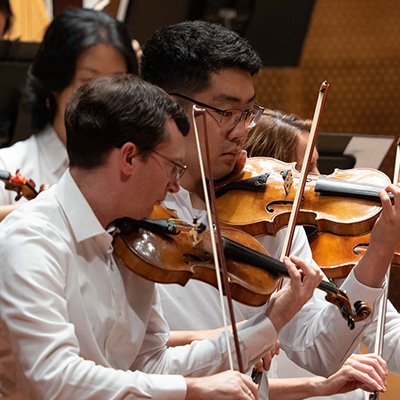
Grant Park Orchestra
Orchestra
-
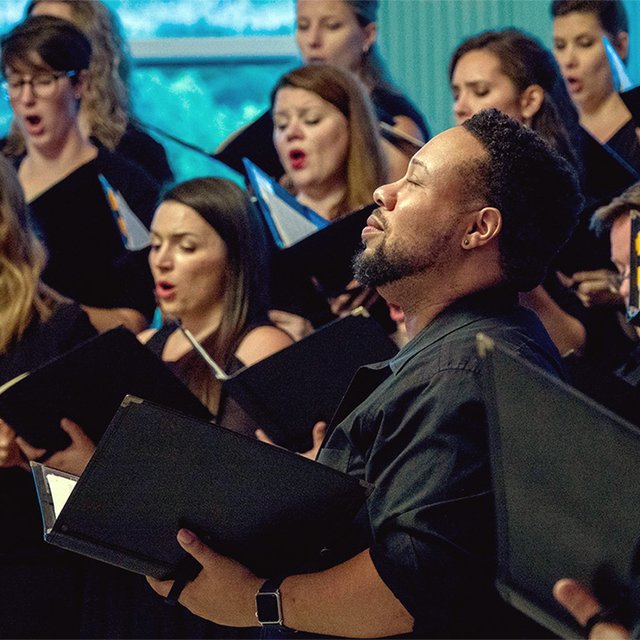
Grant Park Chorus
Chorus
Program Notes
Lili Boulanger (1893–1918)
Psalm 24, La Terre appartient à l'Éternel (The Earth is the Lord’s) (1916)
Scored for: four French horns, three trumpets, four trombones, tuba, timpani, harp, organ, and chorus
Performance time: 5 minutes
First Grant Park Orchestra performance: July 21, 2021; Carlos Kalmar, conductor
The story of Lili Boulanger is equal parts inspiring and tragic. Born to a musical family, the talented young musician composed a number of masterworks during her short life before passing away at the age of 24. Her older sister, Nadia, who went on to become one of the most influential composition teachers of the 20th century, claimed Lili was “the first important woman composer.” Her statement is obviously hyperbolic, but had Lili lived a full life, who knows what glass ceilings she could have broken.
Lili’s father, Ernest Boulanger, was a moderately successful composer himself who taught singing at the Paris Conservatoire. He discovered Lili’s talent early on. From five years old, she began tagging along to Nadia’s music theory classes at the Conservatoire. The prodigy studied numerous instruments but ultimately settled on composition, seeing it as a familial rite of passage. In 1913, she became the first woman to win First Prize in the prestigious Prix de Rome, which had been awarded to the likes of Debussy, Bizet, and Berlioz. Her father had won in 1835, and Nadia had competed numerous times but only managed to eke out second place in 1908. Lili’s historic win for her cantata Faust & Hélène briefly catapulted her to fame. After winning the Prix de Rome, Lili devoted what little time she had left to coming to terms with her failing health through composition. She had had bronchial pneumonia as a toddler, which weakened her immune system and led to a lifelong battle with intestinal tuberculosis (now known as Crohn’s disease). Her highly emotional psalm settings, written in 1916, serve as acts of defiance against both her declining health and the First World War that raged around her.
Psalm 24 exemplifies Boulanger’s unique compositional voice in its modal inflection, colorful instrumentation, and special attention to text setting. The piece begins with a stirring brass fanfare in stacked open fifths that could be straight out of a Biblical epic. The tenors and basses make a declamatory pronouncement of God’s dominion over the Earth, accenting practically every word for maximum textual clarity. A more monastic section follows as the lower voices sing a mostly unison, chant-like melody with quiet support from the organ. This paves the way for a brief lyrical tenor solo accompanied by muted horns and harp. The upper voices enter at last in a return to the character of the opening fanfare. The harmonies become richer, and the rhythmic ostinato in the brass and the organ propel the piece across the finish line in a thrilling accelerando.
Jake Runestad (b. 1986)
Earth Symphony (2021)
Scored for: two flutes including piccolo, two oboes including English Horn, two clarinets, two bassoons, four French horns, two trumpets, three trombones, tuba, timpani, percussion, harp, piano, strings, and chorus
Performance time: 33 minutes
First Grant Park Orchestra performance
Hailed as a “choral rockstar” by American Public Media, Jake Runestad is in high demand as a composer and conductor, working with leading choral and instrumental ensembles across the United States and Europe. Runestad was commissioned to write Earth Symphony in 2021 by True Concord Voices and Orchestra of Tucson, Arizona. For the text, Runestad turned to poet, librettist, public artist, and film producer Todd Boss, marking the creative duo’s ninth professional collaboration.
Earth Symphony is a choral symphony in five movements. Given the scope of symphonic form, Runestad wanted to pick a consequential topic: “one of relevance and power, drawn from our beautiful and complex human experiences,” he writes in his program note. Runestad and Boss came up with the idea of telling a story from the perspective of Mother Earth as she charts humankind’s evolution, their eventual demise through her destruction, and her eventual recovery in their absence. Runestad hopes this personalized angle forces us to confront our role in the climate crisis. “By anthropomorphizing Earth herself,” Runestad writes, “Earth Symphony enables entry into our own ecological shame, guilt, responsibility, potential, and redemption, all from a wide-angled, time-telescoped lens, thereby asking our most immediately pressing environmental questions in an entirely new way.”
The first movement, “Evolution,” presents the musical themes of the symphony and outlines the sonic dissonance between Mother Earth, represented by the key of D major, and humanity, represented by E-flat major. Mother Earth calls humankind “Mirabilia,” her beloved, and is full of hope for the species “reborn as gods of reason.” However, humanity quickly reveals its true colors. The second movement, “Ambition,” tells the story of humankind’s fall from grace through the Greek myth of Icarus, who flew too close to the sun and plummeted into the sea. Runestad conjures an atmosphere of antiquity by emulating the sounds of ancient instruments and quoting the Seikilos Epitaph, the oldest known complete musical composition, dating to the first or second century AD.
Next, “Destruction” depicts a series of harrowing ecological disasters through a barrage of brass, percussion, and woodwinds. Mother Earth grieves her ruination at the hands of her children in “Lament.” This poignant movement quotes another old melody, “When I Am Laid in Earth” (also known as “Dido’s Lament”), from Henry Purcell’s 1689 opera Dido and Aeneas. Finally, “Recovery” sees Mother Earth moving on and restoring balance now that the humans are gone. Runestad captures the stillness of outer space with a choir of tuned wine glasses, bowed vibraphone, and bowed crotales. Mother Earth sings of nature reclaiming man-made spaces—ivy growing over streets, seaweed covering drains, a whale swimming in an empty factory. Even after her devastation, she is not mad but wistful: “There shall come a day like the first day, so heavenly, so clear. Mirabilia, you would love it here.”
Gustav Holst (1874–1934)
The Planets (1914)
Scored for: four flutes including piccolo and alto flute, four oboes including English Horn, four clarinets including bass clarinet, four bassoons including contrabassoon, six French horns, four trumpets, three trombones, tuba, timpani, percussion, two harps, celesta, organ, tenor tuba, strings, and female chorus
Performance time: 51 minutes
First Grant Park Orchestra performance: August 14, 1998; David Atherton, conductor
For most people, The Planets is the only composition by Gustav Holst they can name. And it’s no wonder. As one of the most recorded British compositions, The Planets has infiltrated popular culture with countless quotes and allusions in television and film, from John Williams’s score to Star Wars to the children’s show Bluey. The popularity and familiarity of The Planets is deserved but overshadows not only the rest of Holst’s oeuvre but also the originality of the work itself.
Holst took a keen interest in astrology after meeting playwright Clifford Bax in 1913. Bax was knowledgeable about astrology, and Holst soon began casting horoscopes for friends. Holst explained in a letter, “As a rule I only study things that suggest music to me...Then recently the character of each planet suggested lots to me, and I have been studying astrology fairly closely.” He began writing The Planets soon after, completing the first movement, “Mars, the Bringer of War,” in 1914 and the rest of the movements by 1917. The work saw its first private performance in 1918 and first full public performance in 1920, becoming an immediate hit, much to the reclusive composer’s surprise.
The evocative piece has invited many interpretations. For instance, although Holst completed “Mars” before the outbreak of World War I, it is easy to hear it as a harbinger of the horrific violence to come, with its crashing dissonances, blaring fanfares, and inexorable 5/4 march. Holst repeatedly denied this association. It is also tempting to view The Planets through the lens of Roman mythology, astrology, or astronomy. However, Holst’s work does not completely hold up to any one of these systems, as he reorders and omits planets and assigns qualities to the planets’ namesakes that differ from mythology. Instead, music theorists Táhirih Motazedian and Scott Murphy argue Holst took certain elements from each discipline to construct his own narrative—one where the interplanetary voyage is a metaphor for a metaphysical journey from the strife of earthly life to peaceful solitude in the great beyond.
The Planets has captured our imaginations and invited so many readings because of its musical diversity and invention. The terrifying clamor of “Mars” contrasts with the soothing “Venus, the Bringer of Peace,” with its soft undulating chords and romantic violin solo. “Mercury, the Winged Messenger” is a blithe scherzo, the simultaneous keys of E and B-flat capturing the elusiveness of the spritely god. “Jupiter, the Bringer of Jollity” is thoroughly jovial, containing two dance tunes and a central maestoso melody Holst later extracted for use in a patriotic hymn, “I vow to thee my country.”
Holst’s most personal movement, “Saturn, the Bringer of Old Age,” provides another stark contrast. Watching two older men in black robes solemnly toll the bells at Durham Cathedral inspired Holst to compose the haunting, oscillating flute chords that open the movement. The depiction of the slow march of time apparently hit too close to home for some patrons at a performance in 1920, as a number of older audience members reportedly left the concert hall in the middle of the movement. “Uranus, the Magician” has invited apt comparisons to Paul Dukas’s The Sorcerer’s Apprentice in its galumphing portrayal of a magician. However, all is not what it seems. An exuberant cadence suddenly falls away to reveal an eerie pianissimo, presaging the remoteness of “Neptune, the Mystic.” Here, at the farthest reaches of the solar system, Holst deploys his most effective conceit yet—an offstage treble chorus representing the last echoes of human life as they fade into nothingness.
—Katherine Buzard
Event Sponsors
This concert is generously supported as part of the Dehmlow Choral Music Series.
Artistic Leadership
-

Christopher Bell
Chorus Director
Support The Festival
Violin I
Jeremy Black, concertmaster
Vacant, assistant concertmaster
Trista Wong
Zulfiya Bashirova
Jennifer Cappelli
Injoo Choi
Dima Dimitrova
Erica Hudson
Hyewon Kim
Matthew Lehmann
Jayna Park
Rika Seko
Karen Sinclair
Bonnie Terry
Krzysztof Zimowski
Violin II
Liba Shacht, principal
Vacant, assistant principal
Ying Chai
Ran Cheng
Karl Davies
Likai He
Ann Lehmann
Laura Miller
Cristina Muresan
Kjersti Nostbakken
Irene Radetzky
Jeanine Wynton
Thomas Yang
Viola
Terri Van Valkinburgh, principal
Yoshihiko Nakano, assistant principal
Elizabeth Breslin
Beatrice Chen
Amy Hess
Rebecca Swan
Chloé Thominet
Cello
Walter Haman, principal
Peter Szczepanek, assistant principal
Calum Cook
Larry Glazier
Steven Houser
Eric Kutz
Eran Meir
Double Bass
Colin Corner, principal
Peter Hatch, assistant principal
Andrew Anderson
Christian Luevano
Samuel Rocklin
Chunyang Wang
Chris White
Flute
Vacant, principal
Alyce Johnson
Jennifer Lawson, assistant principal
Piccolo
Jennifer Lawson
Oboe
Mitchell Kuhn, principal
Vacant
Anne Bach, assistant principal
English Horn
Anne Bach
Clarinet
Dario Brignoli, principal
Trevor O’Riordan, assistant principal
Besnik Abrashi
Bass Clarinet
Besnik Abrashi
Bassoon
Eric Hall, principal
Nicole Haywood Vera Tenorio, assistant principal
Vacant
Contrabassoon
Vacant
Horn
Vacant, principal
Stephanie Blaha, assistant principal
Neil Kimel
Brett Hodge
Paul Clifton
Trumpet
David Gordon, principal
Mike Brozick
Vacant, assistant principal
Vacant
Trombone
Daniel Cloutier, principal
Jeremy Moeller, assistant principal
Bass Trombone
Alexander Mullins
Tuba
Andrew Smith, principal
Timpani
Daniel Karas, principal
Josh Jones, assistant principal
Percussion
Josh Jones, principal
Vacant, assistant principal
Doug Waddell
Harp
Kayo Ishimaru-Fleisher, principal
Keyboards
Christopher Guzman
Orchestra Librarian
Eliza Bangert, principal
Grant Park Chorus
* denotes leave-of-absence † 2025 Vocal Fellow
Laura Lynch Anderson
Kristina Bachrach
Madalynn Baez
Megan E. Bell
Alyssa Bennett
Tamara Bodnar
Kylie Buckham
Anna Joy Buegel
Laura Bumgardner
Katherine Buzard
Bethany Clearfield
Nathalie Colas
Carolyne DalMonte
Megan Fletcher
Kaitlin Foley
Saira Frank
Julia Frodyma
Katherine Gray-Noon
Kimberly Gunderson
Alexandra Ioan
Alexandra Kassouf
Darlene Kelsey
Olivia Knutsen
Marybeth Kurnat
Katelyn Lee
Kyuyim Lee+
Rosalind Lee
Veronica Mak
Hannah Dixon McConnell
Marie McManama
Kathleen Monson
Susan Nelson
Evangeline Ng
Máire O'Brien
Alexandra Olsavsky
Laura Perkett
Angela Presutti Korbitz
Alexia Rivera
Veronica Samiec
Emily Sinclair
Molly Snodgrass
Tiana Sorenson
Christine Steyer
Sarah van der Ploeg*
Lydia Walsh-Rock
Sherry Watkins
Emily Amesquita
Melissa Arning
Christina Bernardoni
Angela Born
Bethany Brewer
Julie DeBoer
Leah Dexter
Katrina Dubbs
Stacy Eckert
Margaret Fox
Catarine Hancock
Ruth Ginelle Heald
Sophia Heinz
Miya Higashiyama
Carla Janzen
Amy Allyssa Johnson
Kathryn Kinjo Duncan
Amanda Koopman
Anna Laurenzo
Jeannette Lee
Thereza Lituma
Chelsea Lyons
Victoria Marshall
Jessica McCarthy
Quinn Middleman
Ella Peters
Sarah Ponder
Emily Price
Stephanie Schoenhofer
Suzanne A. Shields
Marissa Simmons
Cassidy Smith
Aidan Spencer
Alannah Spencer
Margaret Stoltz
Carolyn Sundlof Boudreau
Gabrielle Timofeeva López
Elizabeth Vaughan
Corinne Wallace-Crane
A.J. Wester
Debra Wilder
Isabel Yang+
Charles Anderson
Enrico Giuseppe Bellomo
Justin Berkowitz
Madison Bolt
Hoss Brock
Steven Caldicott Wilson
Opal Clyburn-Miller+
John J. Concepción
Micah Dingler
Jared V. Esguerra
Alec Fore
Ace Gangoso
Klaus Georg
Tejas Gururaja
Paul Hunter
Garrett Johannsen
William Johnson
James Judd
Tim Lambert
Tyler Lee
Stephen D. Noon
Marcos Ochoa
Brett Potts
Nicholas Pulikowski
Peder Reiff
Samuel Rosner
Matthew W. Schlesinger
Joe Shadday
Aaron Short
Brian Skoog
Michael St. Peter
Ryan Townsend Strand
Alan Taylor*
Sean J. Watland
Nate Widelitz
Walter Aldrich
Evan Bravos
Matthew Brennan
Michael Cavalieri
Ryan J. Cox
Ed Frazier Davis
Lifan Deng
Matthew Dexter+
Chris DiMarco
Christopher Filipowicz
Dimitri German
Dominic German
David Govertsen
Spencer Greene
Brian Hupp
Jan Jarvis
Jess Koehn
Eric Miranda
Ian Morris
Ian Murrell
John E. Orduña
Wilbur Pauley
Douglas Peters
Jackson Pierzina
Martin Lowen Poock
Ian Prichard
Dan Richardson
Stephen Richardson
Benjamin D. Rivera
Scott Uddenberg
Schyler Vargas
Vince Wallace
Aaron Wardell
Ronald Watkins
Jonathon Weller
Peter Wesoloski
Jonathan Wilson
Chuck Foster
John Goodwin
Kyuyim Lee
Isabel Yang
Opal Clyburn-Miller
Matthew Dexter
